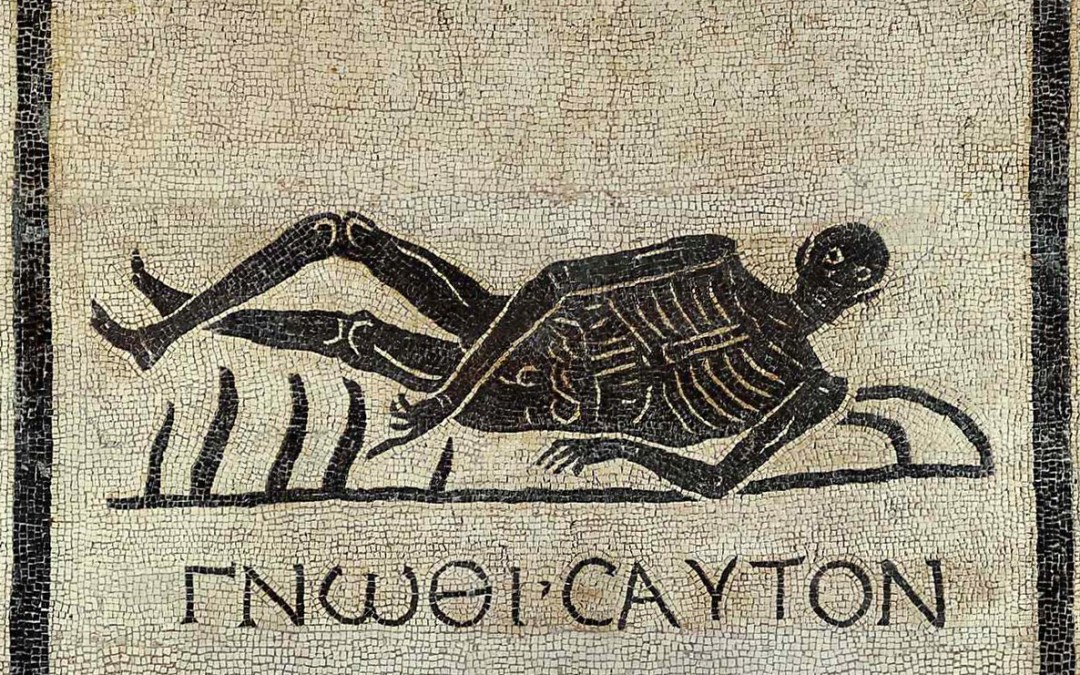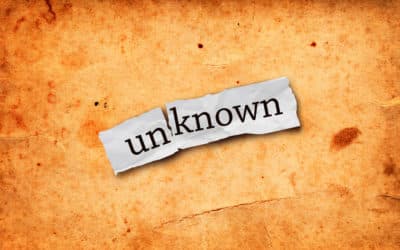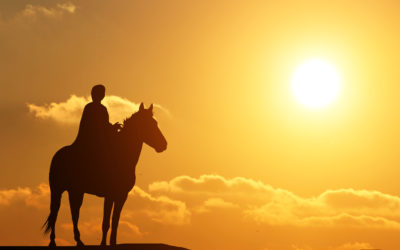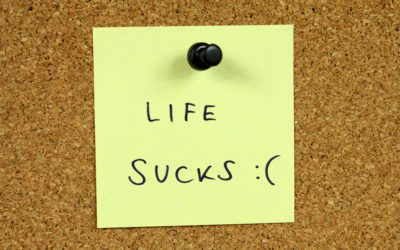1. Know your quirks
Every year, we go on at least one family holiday. And for as long as I can remember, at some point on the first day, my mood drops, I find fault with our lodging, mode of transport, host nation, or some random stray animal who catches my eye, and I begin to rail against the world. I used to really believe these rants, and they would poison my view for the first few days until, in my mind, I’d make the decision to be the bigger man and let everyone get on with their holiday in spite of whatever appalling thing we had been subjected to.
At a certain point, it dawned on me that “the holiday blues” was no more or less than a habit of thought, and while it still happens, my family (mostly) humor me through it and it takes less and less time each year for my thinking to settle and my innate well-being to find its way back up to the surface.
In the same way, as we begin to catch wise to our quirks – the tendency to think that every man or woman who’s nice to us must be “the one”, or to make false declarations of “never again” in the midst of each hangover, or to be criticized and immediately turn our upset outward at that “horrible person” who had the temerity to find fault with us – we stop being victims of the world and wake up to the compelling hallucination of our own thought-created reality.
2. Know your humanity
I had a client who was very successful in business and generally moved through life with a lot of grace and humor. One day he was complaining to me about what was going on with one of his companies, and it was a sufficiently unusual occurrence that I listened quietly as he spent over twenty minutes outlining chapter and verse of everything that had gone wrong and setting a coaching agenda that would take us several sessions to work through. At the end of that time, I asked him what seemed to me to be an obvious question: “Would another way of saying all that be ‘You had a bad week?’”
He went quiet for about thirty seconds and I’d begun to think I’d offended him when he burst out laughing. “Yes, I guess that would be another way of putting it.” Our coaching agenda now resolved, we went on to look at the nature of the human condition.
On the off chance you haven’t noticed, we live in a world where bad things happen to good people, we trust people and they let us down, well-intentioned actions sometimes bring about disastrous consequences, and, spoiler alert, everyone dies at the end of the play.
Fortunately, we also live in a world where people practice random acts of kindness and senseless beauty. Sometimes our plans and schemes work out better than we could have ever imagined, and it’s always darkest right before the dawn.
In other words, nobody gets to escape the human condition, with all its foibles and freneticism and beauty and bliss. And when we see that, we stop taking everything so personally and realize that the reason sometimes things go our way and sometimes they don’t isn’t because we weren’t trying hard enough, but rather because at some point we incarnated in human form on the planet Earth. And we begin to relax about it all. And the game of life and death starts feeling like a game again, and not a matter of life and death.
3. Know your divinity
When I first got the idea to write a blog post about “Know Thyself”, I thought it would be pretty groundbreaking when I introduced the notion that the self worth knowing most of all is the true Self – the spirit within that the enlightened Scottish welder Syd Banks pointed to in saying “God you are, but you are not God.” But then a quick trip around the internet revealed a poem written by Ralph Waldo Emerson called “Gnothi Seauton” – Know Thyself.
If you can navigate any remnants of the “God phobia” that so many of us carry with us from our childhood, here are a few stanzas from the longer poem that beautifully illustrate the presence of a deeper presence within us all…
Strong meat of simple truth
If thou durst my words compare
With what thou thinkest in my soul’s free youth,
Then take this fact unto thy soul,—–
God dwells in thee.
It is no metaphor nor parable,
It is unknown to thousands, and to thee;
Yet there is God.
He is in thy world,
But thy world knows him not.
He is the mighty Heart
From which life’s varied pulses part.
Clouded and shrouded there doth sit
The Infinite
Embosomed in a man;
And thou art stranger to thy guest
And know’st not what thou doth invest.
The clouds that veil his life within
Are thy thick woven webs of sin,
Which his glory struggling through
Darkens to thine evil hue.
Then bear thyself, O man!
Up to the scale and compass of thy guest;
Soul of thy soul.
Be great as doth beseem
The ambassador who bears
The royal presence where he goes.
Give up to thy soul—–
Let it have its way—–
It is, I tell thee, God himself,
The selfsame One that rules the Whole,
Tho’ he speaks thro’ thee with a stifled voice,
And looks through thee, shorn of his beams.
But if thou listen to his voice,
If thou obey the royal thought,
It will grow clearer to thine ear,
More glorious to thine eye.
The clouds will burst that veil him now
And thou shalt see the Lord.
Therefore be great,
Not proud,—–too great to be proud.
Let not thine eyes rove,
Peep not in corners; let thine eyes
Look straight before thee, as befits
The simplicity of Power.
And in thy closet carry state;
Filled with light, walk therein;
And, as a king
Would do no treason to his own empire,
So do not thou to thine.
This is the reason why thou dost recognize
Things now first revealed,
Because in thee resides
The Spirit that lives in all;
And thou canst learn the laws of nature
Because its author is latent in thy breast.
With all my love,
![]()





